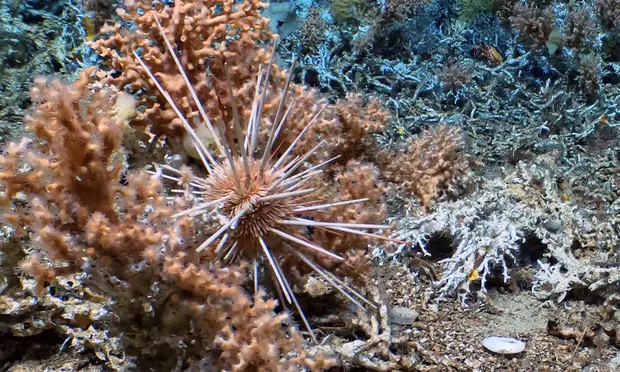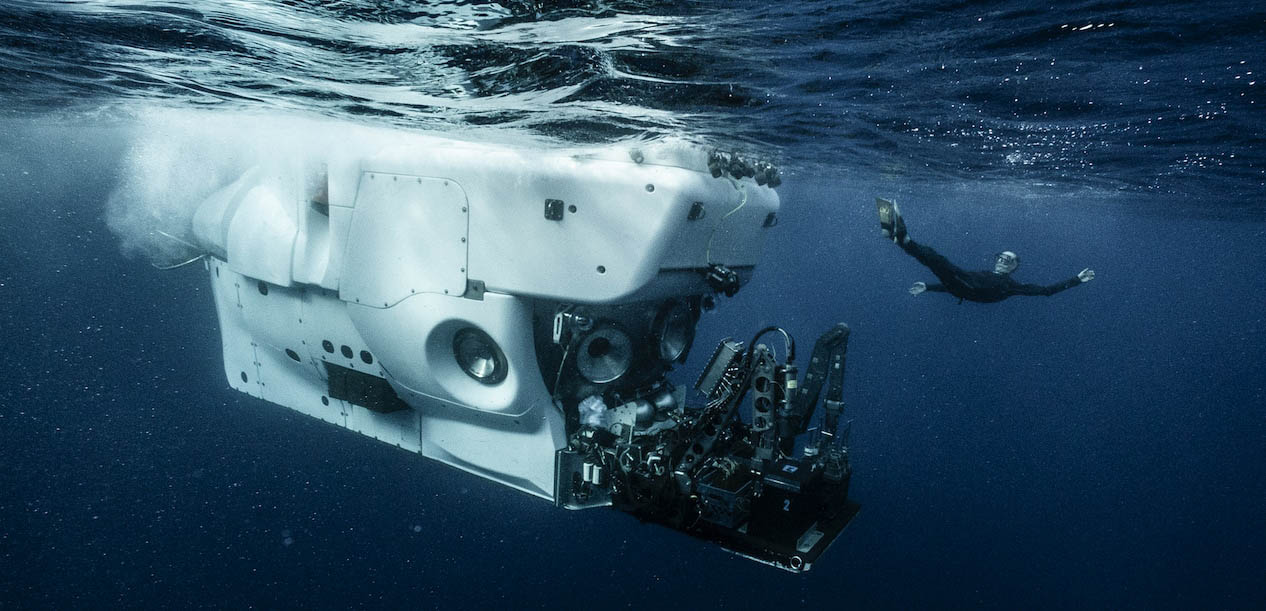A submersible operated by scientists has discovered coral reefs deep in the ocean in an unexplored area of the Galapagos Marine Reserve.
Scientists surveyed a diverse array of marine life at depths up to 600m (1,970ft) in the centre of the archipelago. The scientists are hopeful that coral reefs will still be able to thrive in a world where sea temperatures have reached record levels and the ocean is acidifying.They said it also demonstrated the efficacy of conservation measures and effective management.

The submersible, HOV Alvin can take up to two scientists down to 6,500 meters.
Jose Antonio Davalos is the Environment Minister for Ecuador which owns Galapagos. It reaffirms the determination of Ecuador to create new marine protected zones [MPAs] and continue to promote the creation a regional marine protection area in eastern tropical Pacific.
It is working with Panama, Costa Rica, and Colombia, its neighbours in the north, on a initiative to create a regional marine corridor that aims at protecting and managing oceans responsibly.
Operated by Taylor and Dr Stuart Banks, of the Charles Darwin Foundation in Ecuador, HOV Alvin explored unknown regions of the reserve using state-of-the-art sampling capabilities and visual upgrades that included improved high-quality still and ultra-high-definition 4K video-imaging systems.
Before this discovery was made, Wellington Reef off Darwin Island, in the north-east of the Galapagos Archipelago islands, had been thought to be one of only a few shallow structural coral reefs that survived the devastation caused by the El Nino Event of 1982-1983.
This discovery shows that deep water corals communities, which are sheltered, have likely existed for many centuries within the Galapagos Marine Reserve, and supported rich, diverse, and possibly unique marine communities.
Taylor stated that "these newly discovered coral reefs could be of global importance - they are a canary in the coal mine for other reefs around the world. We will monitor these sites over time and see what happens to pristine habitats as a result of our climate crisis."
Banks said the reef was a tool that helped scientists to "reconstruct ocean environments in order to better understand climate change today".The reef could help scientists understand the role MPAs play in carbon cycles and fishing. He said that it is likely there are still more coral structures at different depths to be discovered.
The Hermandad Marine Reserve, a newly-established MPA in Ecuadorian water, connects seamounts to marine environments offshore, such as the Cocos Island National Park of Costa Rica. Scientists claim that the undersea mountains act as migratory pathways for marine life, and special measures are needed to preserve foraging grounds for fisheries and protect them.
Davalos stated that the discovery is another reason for achieving the Global Ocean Alliance 30-x30 commitments, which aim to protect 30% of oceans around the globe by 2030.
The US Navy owns HOV Alvin, which is operated by Woods Hole Oceanographic Institution as part of National Deep Submergence Facility funded by the US National Science Foundation. The Natural Environmental Research Council of the UK also funded the project.

Taylor and Banks also belong to an international team of scientists aboard the US Navy-owned and WHOI operated research vessel RV Atlantis which is currently undertaking the Galapagos deep 2023 expedition.